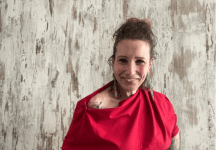Dr. Gabriele Lang shows how women leaders can transform pressure, conflict, and self-doubt into clarity, confidence, and influence. Drawing on decades of experience in psychology and global leadership, she reveals the power of emotional intelligence as the ultimate tool for thriving in high-stakes environments.
“Friction and pressure fuel clarity and confidence.”
As a woman leading a global leadership ebusiness, what unique challenges have you faced and how did you overcome them?
I never experienced the main challenge as being a female founder or managing director. What challenged me far more was being an expert and innovator in personal and organisational development in a world that still undervalues emotional competence. Even though I combine psychology with the digital world, many managers and investors still place emotional intelligence at the very bottom of their priority list. Yet it is exactly this area where the biggest unconscious blockages sit and where organisations lose enormous potential.
We are living in times of polycrisis. Nobody can escape friction, pressure or misunderstandings anymore. And without the right mindset and skillset to handle them, leaders pay for it with time, energy, nerves and money. You only need to switch on the news to see how urgently we need better ways of dealing with conflict.
Across more than thirty years in the business world, I learned something that changed everything for me. When I understand my own patterns, stress reactions and blind spots, nobody can diminish my voice. Psychology gave me the tools to stay grounded under pressure. My fascination for human behaviour gave me the clarity to see the emotional system behind every conflict. And my own life experience gave me the courage to turn friction into fuel.
This combination has shaped my success, and it is what I now pass on to the leaders I work with.
How has your understanding of psychology influenced the way you mentor and empower other women in leadership roles?
Psychology allows me to look beneath the surface. Most women and men do not struggle because of missing functional skills. They struggle because unconscious beliefs, fears and expectations shaped by their upbringing and culture quietly influence their behaviour. These emotional barriers condition their default reactions, especially under pressure.
For many women, it is essential to learn that not every interaction will end in harmony. There will be moments where compromise is not possible and where you must fight for what truly matters to you. Giving the word “fight” a positive meaning is crucial. It is not about aggression. It is about standing your ground, being on eye level and protecting what is important.
This also includes understanding manipulative techniques and communication tricks that are present in every business environment. When women recognise these patterns and know how to respond, they step into a position of clarity, strength and influence.
In high stakes environments, how do you ensure your voice and ideas are heard and valued?
Understanding my own triggers has been the most important foundation for staying calm when pressure rises. It protects me from becoming insecure and helps me remain present even in tough situations. Over the past decade, my work has focused exactly on this truth: people react very differently under stress, and when you understand these patterns, you can prepare both tactically and psychologically for demanding environments.
Strengthening my mindset has also been essential. Surrounding myself with people who support me and challenge me in a healthy way helps me stay grounded. Moments of doubt and fear appear for all of us, but they do not define us when we know how to regulate them.
What empowers me most is the realisation that I am never powerless, and it is up to me to be courageous. I can always change my behaviour, my perspective and my level of presence. I cannot change others against their will, but I can influence them with clarity, emotional intelligence and genuine interest. This understanding shifts everything. It turns pressure into possibility and keeps me effective even when the environment is intense.
What advice would you give women navigating male dominated corporate sectors to turn conflicts into opportunities?
Do not internalise friction as a personal failure. Conflict is part of leadership and part of progress. What matters is learning to read it through a psychological lens. When you understand what drives a difficult colleague or a dismissive manager, you gain influence instead of losing energy.
Stay anchored in your goals, set your boundaries early and communicate with calm strength. These are the moments when your presence speaks louder than any power game. And never underestimate emotional intelligence. It consistently outperforms force because it allows you to navigate pressure without losing yourself. It is one of the most strategic skills a woman can develop in male dominated environments.
And there is a simple truth many women forget. You can take a situation as it is, you can change it, or you can leave it. Sometimes you reach a point where you realise that impact and change are no longer possible in a particular organisation. Recognising that moment is not a failure. It is clarity. And clarity is the beginning of power.
How do you balance empathy with assertiveness in your leadership and coaching practice?
It always comes down to a healthy balance. Empathy without clarity creates confusion. Assertiveness without empathy creates fear. Real leadership is the ability to hold both at the same time. I make a conscious effort to understand the human behind the behaviour. And at the same time, I stay firm on expectations, boundaries and standards. When you understand stress patterns and emotional triggers, this balance becomes natural. It allows you to remain warm without becoming soft, and strong without becoming harsh.
Many women struggle with self-doubt in leadership. How do you help clients transform hesitation into decisive action?
Self-doubt is usually a sign of old emotional imprints rather than a lack of competence. I help clients identify the root, not just the reaction. When they understand the pattern behind their hesitation, they can finally replace confusion with clarity.
From there, we work with small behavioural steps that build confidence step by step. And something shifts the moment women realise they can handle pressure without losing themselves. Decision making becomes natural instead of stressful.
At the same time, honesty is essential. There are environments that drain energy no matter how skilled or resilient you are. Recognising those places and choosing not to stay in them is also an act of strength and emotional intelligence.
Can you share a story where your coaching approach helped a woman leader unlock her full potential?
I once worked with a woman who was exceptionally talented but constantly overshadowed by louder personalities in her organisation. She felt invisible, questioned her impact and quietly wondered whether she even had a future there.
Through our work, she discovered how her own stress reactions made her withdraw in exactly the moments where she needed to be present. She learned how to show emotional presence without feeling confrontational and how to stay steady even when others dominated the room.
Within six months, she led with a completely different level of confidence. She no longer feared tough conversations, and she protected her ideas with clarity and calmness. The shift did not come from changing her personality. It came from understanding her emotional patterns and using them strategically.
This is where real leadership growth begins, not in becoming someone else, but in becoming more conscious, more present and more powerful in your own way.
What personal habits or routines sustain your energy, clarity and impact over three decades?
I take emotional hygiene very seriously. I reflect, I sleep, I move my body and I spend time with people who give me energy. Sauna, sports and moments of quiet help me release pressure. I have also done deep personal development work for decades, and that inner work has been the foundation of my resilience and clarity.
How can women leverage emotional intelligence to accelerate their careers or grow their businesses?
Emotional intelligence is not about being nice. It is the ability to read the room, regulate your own reactions and interact effectively with others even when stress is high. When women develop this strength, they navigate power dynamics with far more ease, make clearer decisions and build trust much faster.
It becomes one of the strongest accelerators for career growth and business success. It is often the hidden advantage behind sustainable leadership because it allows women to stay steady, strategic and influential in moments when others lose presence.
Looking ahead, what opportunities do you see for women entrepreneurs to make a meaningful impact in global business today?
We are entering a time where emotional clarity, human centred leadership and the ability to navigate complexity are no longer optional. They are essential. Many women bring a natural strength in empathy and care, and when they learn to combine these qualities with strong decision making and confident leadership, their impact becomes extraordinary.
Staying calm, grounded and factual under pressure is a true competitive advantage. Complex problems can only be solved through collaboration between people with different expertise, personalities and expectations. This requires leaders who do not drown in emotional dramas or manipulative games, but who know how to guide the system with clarity and strength.
When we learn to regulate ourselves and understand emotional dynamics, we create sustainable success and progress. We move from reacting to intentionally shaping the future. Emotional intelligence is not a talent. It is a learnable capability. And everything changes the moment we take accountability and begin that work within ourselves.











